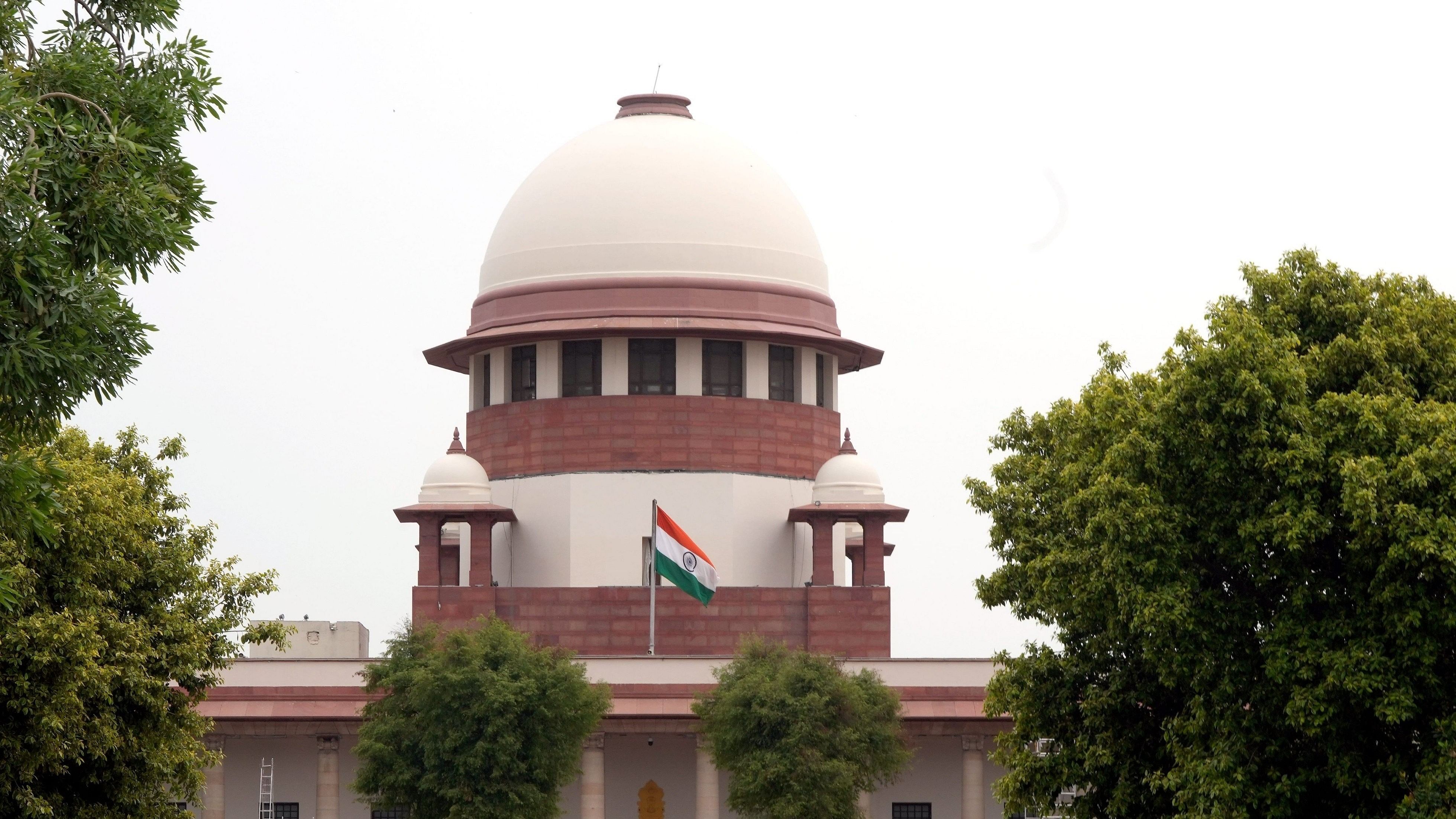
The Supreme Court of India.
Credit: PTI File Photo
New Delhi: The Supreme Court on Wednesday declared that the principle 'bail is a rule, and jail an exception' would apply even in cases registered under stringent the Prevention of Money Laundering Act (PMLA).
A bench of Justices B R Gavai and K V Vishwanathan said that although Section 45 of the PMLA only laid down that the grant of the bail would be subject to the twin conditions, but it would not alter the fundamental principle that bail is the rule.
Reading out excerpts of a judgment, the bench said the principle that bail is the rule and jail is the exception is only a paraphrasing of Article 21 of the Constitution which states that no person shall be deprived of his life or personal liberty except according to the procedure established by law.
"Liberty of the individual is always the rule and deprivation is the exception. Deprivation can be made only by the procedure established by the law which has to be valid and reasonable. Section 45 of the PMLA by imposing twin conditions does not rewrite this principle to mean that deprivation is the norm and liberty is the exception. All that is required is that in cases where bail is subject to the satisfaction of the twin conditions, those conditions must be satisfied," the bench said.
The top court's judgment came on a bail plea filed by Prem Prakash in an illegal mining case.
The petitioner is alleged to be an aide of Jharkhand Chief Minister Hemant Soren. He had moved the apex court after the Jharkhand High Court denied him bail in the matter.
The bench had earlier noted that the petitioner Prem Prakash had been behind the bars for 18 months.
During the hearing, the court observed that right to bail flowed from Article 21 of the Constitution and Section 45 PMLA, which laid down rigorous twin conditions for bail, would not be a fetter for the court to exercise the right to grant bail.
The twin conditions for bail under the PMLA meant the prosecutor should be given adequate opportunity to oppose the bail and secondly the accused has to prove prima facie that he is not guilty.
In a separate judgment on August 13, 2024, the top court had held the principle of 'bail being a rule and jail an exception' can be applied in cases registered under special law like the Unlawful Activities (Prevention) Act.
